Over 160 early- and mid-career researchers from all over the world gathered in Halle, Germany for the GYA’s Anniversary International Conference of Young Scientists and Annual General Meeting.
To represent and lead them through the upcoming year, GYA members elected leaders hailing from 5 continents – a majority of whom are women – to the Executive Committee. As Co-Chairs for the upcoming year, members chose Connie Nshemereirwe (Uganda) and Koen Vermeir (France).
Connie and Koen were both re-elected – Connie was a Co-Chair last year, while Koen was a member of the Executive Committee last year. Both Anina Rich (Australia) and Yoko Shimpuku (Japan) were re-elected to the Executive Committee.
A hearty congratulations to the Co-Chairs and the Executive Committee members! You can read more about them below.
Connie Nshemereirwe (Uganda)
Connie’s research, which is at the interface of humanities and education, aims to develop and improve undergraduate classes in Uganda. Alongside her theoretical work, Connie leads a project to provide offline access to online educational material a project fuelled by the conviction that education is the best instrument for solving global issues of equality and sustainability.
[View Profile]
Koen Vermeir (France)
Koen is an Associate Research Professor (CR1) at the French National Centre for Scientific Research (CNRS). He has studied aspects of the early institutionalization of science and the science/society interface. Closely related to interests of the GYA, Vermeir has analyzed alternative models for understanding the organization of knowledge (science as a commodity vs. the scientific commons) and he has reflected on foundational questions related to the management of science.
[View Profile]
Meet the members of the Executive Committee 2019/20:
Nova Ahmed (Bangladesh)
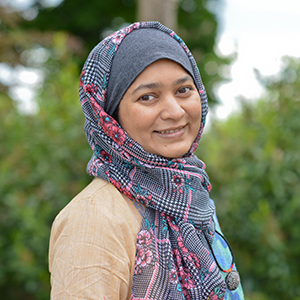 Computer scientist + technology expert
Computer scientist + technology expertAfter obtaining her PhD, Nova started working with operating systems, humans, and the space that lies between them. Her aim is to connect man and machine, as this will help to provide low-cost and socially accepted solutions to countless global challenges.
[View Profile]
Maral Dadvar (Germany)
 Computer scientist
Computer scientistBeing an expert in semantic web and natural language processing, Maral aims to continue her research and efforts in making the cyber society a safer environment by prevention and detection of crimes and online misconducts. She believes that better solutions derive from multidisciplinary approaches rather than sheer technical ones.
[View Profile]
Sandra Lopez-Verges (Panama)
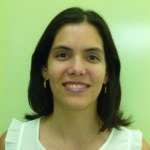 Virologist + immunologist
Virologist + immunologistSandra’s research focus is on the virus-human host interaction as she tries to understand the role of innate immunity in viral diseases. Currently, arboviruses are her main focus. She participates in scientific associations and a new movement of young scientists in Panama that are involved in science communication.
[View Profile]
Anina Rich (Australia)
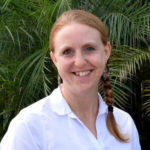 Cognitive Scientist
Cognitive ScientistAnina is Director of the Perception in Action Research Centre (PARC) and heads the Synaesthesia@Macquarie research group. She was President of the Australasian Cognitive Neuroscience Society in 2016 and was elected to the GYA Executive Committee for 2018/2019. Anina is passionate about research integrity, science communication, social justice and equality.
[View Profile]
Yoko Shimpuku (Japan)
 Midwifery researcher + Africanist
Midwifery researcher + AfricanistYoko is committed to reducing maternal and neonatal mortality in resource-poor settings, especially in Africa, working closely with the World Health Organization. Based on her research on childbirth experiences and cultural understanding of Tanzanian women, she has developed educational materials for pregnant women and families.
[View Profile]
Anindita Bhadra (India)
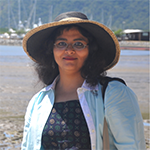 Behavioural biologist + blogger
Behavioural biologist + bloggerInitially exploring the sociability of insects, the first chairperson of the Indian NYA went on to research the behaviour of wild dogs, leading to new insights into regarding intrinsic behavioural processes and the exciting relationship between dogs and humans. On her blog she follows her passion for behavioural studies and captures moments of her everyday life.
[View Profile]
Robert Lepenies (Germany)
 Social scientist + philosopher
Social scientist + philosopherRobert Lepenies is a research scientist at the Helmholtz Centre for Environmental Research. He is working on themes in the philosophy of economics and public policy. Recent research interests include the ethics of economics, the legitimacy of using behavioral instruments in policy (“nudging”), and questions relating to the role of scientists in society.
[View Profile]
Marian Nkansah (Ghana)
 Environmental chemist + humanitarian
Environmental chemist + humanitarianDue to her passion for the environment and the desire to help preserve it, Marian is dedicated to finding solutions to environmental problems associated with levels of toxic substances such as heavy/trace metals and polycyclic aromatic hydrocarbons (PAHs) in food, water, soil, rocks, sediments and other matrices; and the interaction of these pollutants with each other in the environment as well as remediation strategies.
[View Profile]
Michael Saliba (Switzerland)
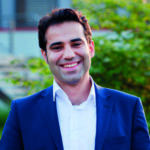 Researcher + optoelectronic materials
Researcher + optoelectronic materialsMichael is a group leader at the Adolphe Merkle Institute in Fribourg, Switzerland. From 2015-2017, he was a Marie Curie Fellow at EPFL. His research studies novel optoelectronic materials. He made pioneering discoveries in the field of emerging perovskite solar cells that could trigger a solar energy revolution, thus enabling a sustainable energy future.
[View Profile]
